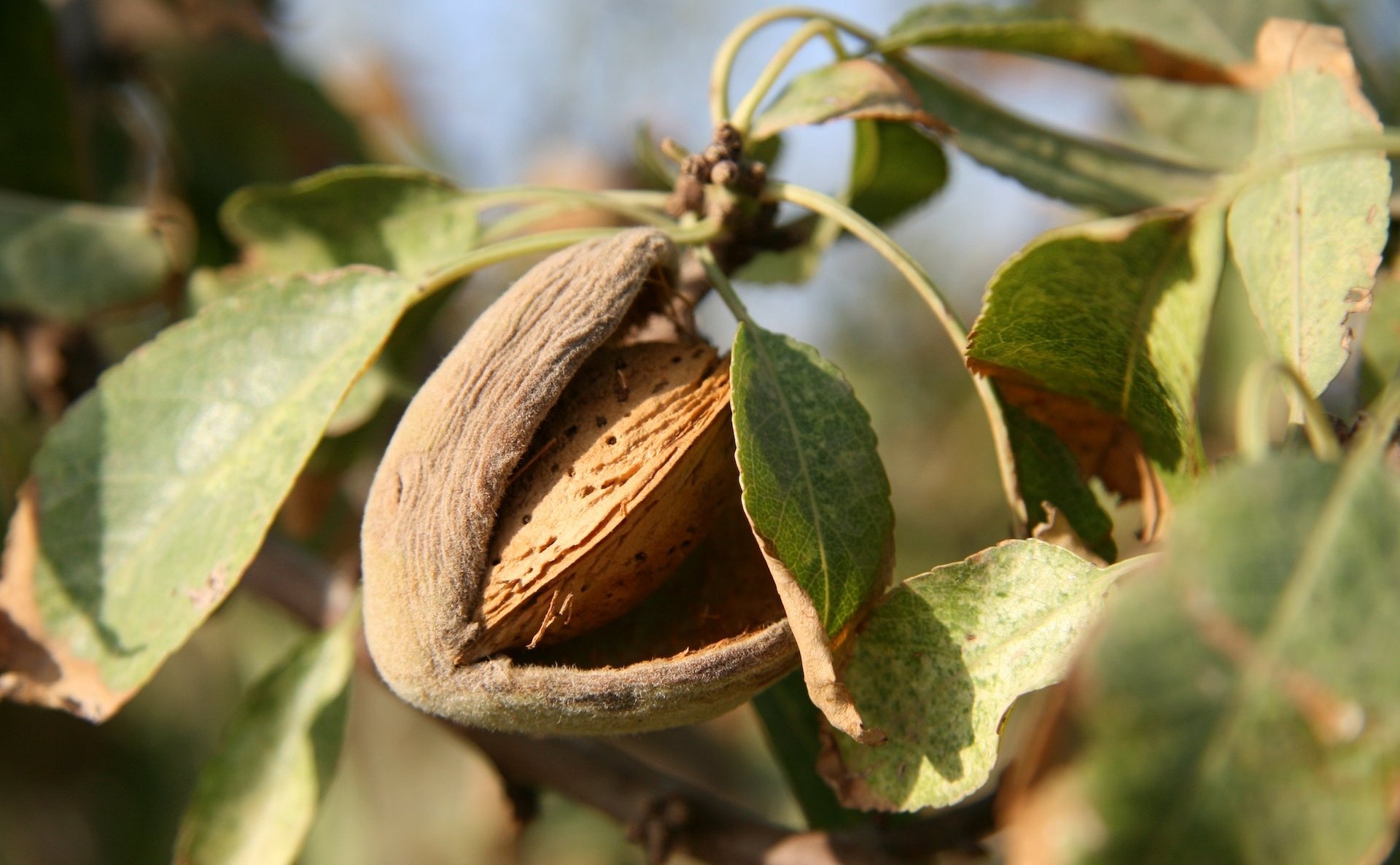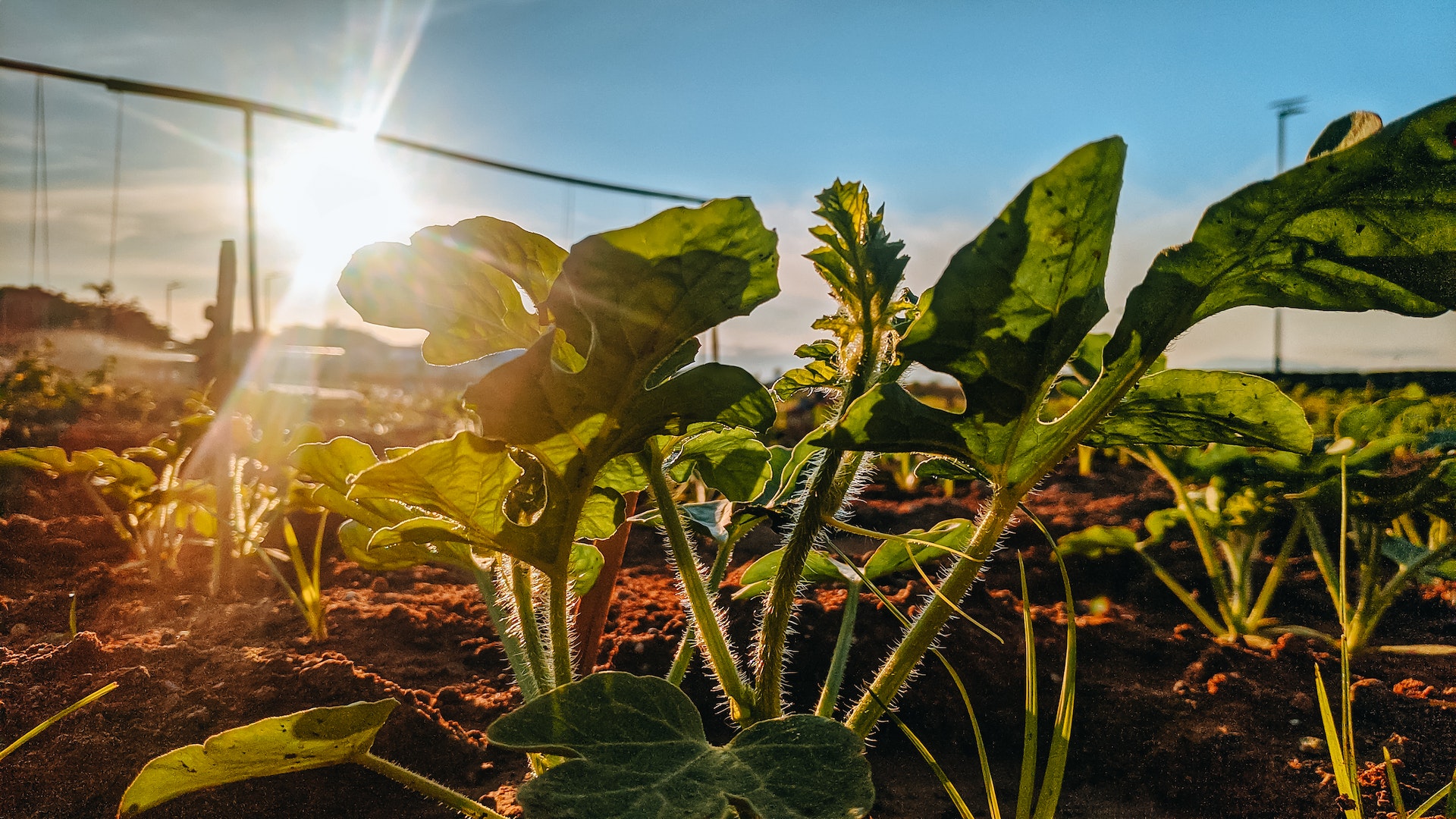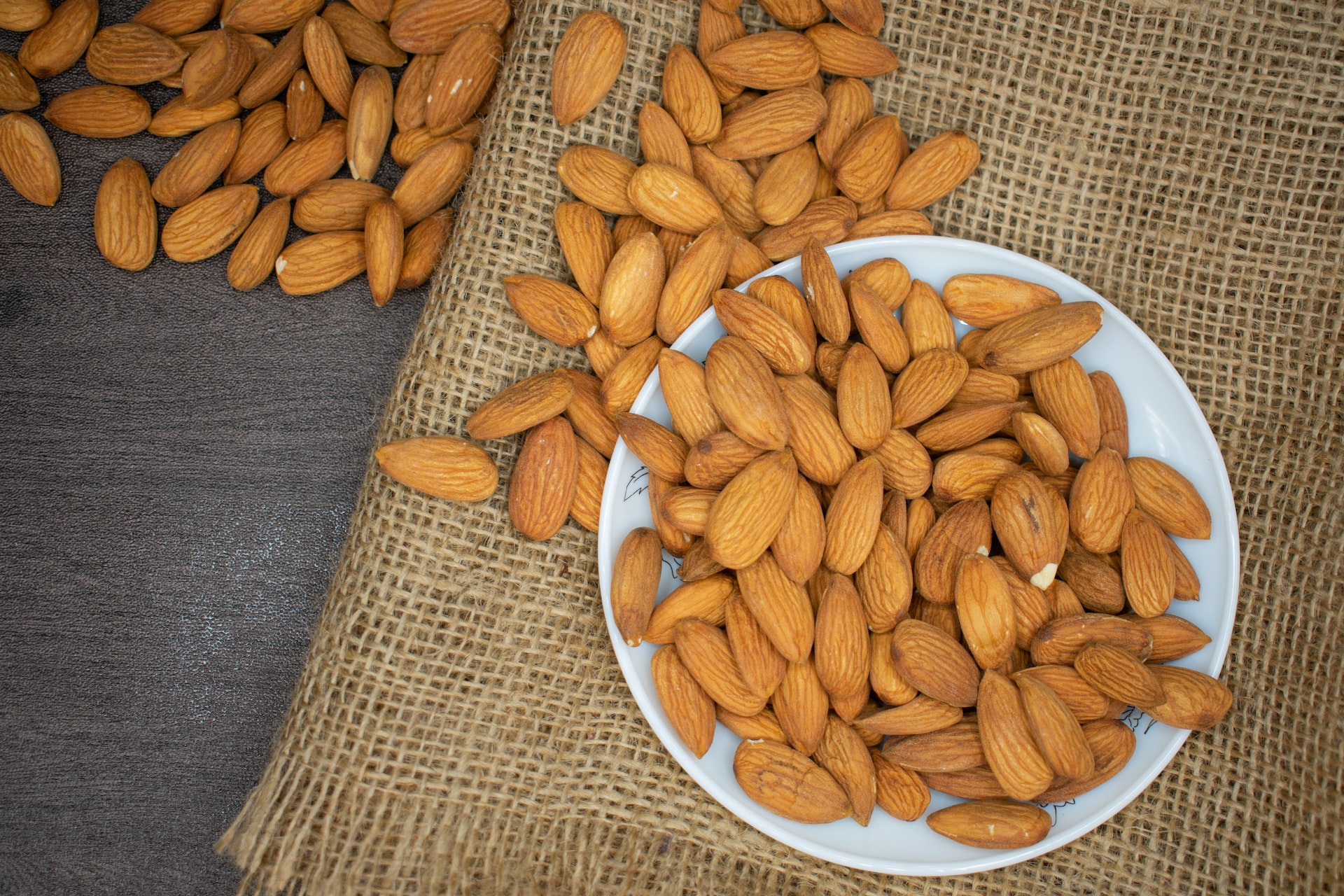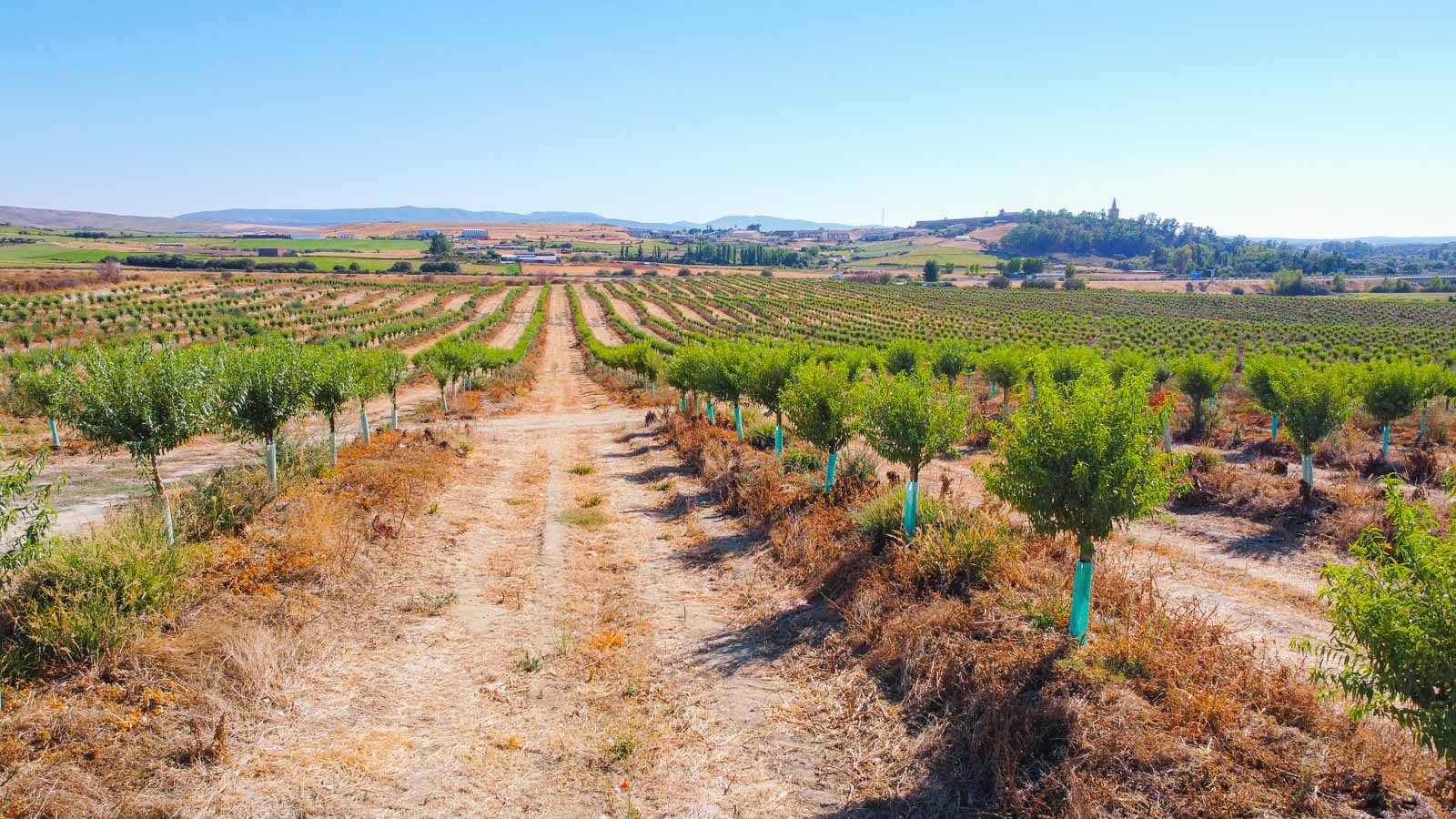Alternative Investing With Purpose And High RoI: Organic Almond Farming

Thank you for subscribing!
Have a great day!
I wanna share something that I am really super excited about. I found an investment opportunity that seems to tick all the boxes. It’s sustainable, can deliver high returns, takes care of the planet, makes me feel good, it’s in line with my life philosophy, and I can directly get involved myself.
Today I want to introduce alternative investing with purpose and high RoI: organic almond farming. I will cover what exactly is organic farming (with a focus on almonds), market growth rates, the special form of managed farming, and the opportunity that lies in investing in organic almond farming.
Let’s dive in.
What Is Organic Farming?
Organic farming is an agricultural system that places a focus on using sustainable, natural techniques to raise crops and livestock. Artificial fertilizers, pesticides, genetically modified organisms (GMOs), antibiotics, and growth hormones are not allowed in organic cultivation.
Instead, to improve soil health, reduce pests and diseases, and increase biodiversity, organic farming uses a variety of natural methods like crop rotation, composting, biological pest management, and natural fertilizers. All of these help to maintain soil fertility, increase water retention, and reduce erosion. This is critical for the long-term sustainability of our farming systems, and, in fact, for the health of our planet.
One driving factor why organic farming is on the rise is that consumer awareness is thankfully growing. Because people understand more about nutrition and the value of healthy food choices, we seem to switch more and more to sustainable production methods that are not killing our planet. With this, the demand for organic products increases, which leads to a growing organic farming trend in the agricultural industry.

A Special Case: Organic Almond Farming
Let’s first take a look at what’s so special about almonds.
What’s So Special About Almonds?
Almonds are a nutrient-dense food. 100g of raw almonds include 21g protein, 13g dietary fiber, 44g of healthy fats, about 60% of your daily magnesium need, and about 25% of your daily calcium need.
Almonds offers a range of health benefits including:
The high amount of healthy fats (monounsaturated and polyunsaturated fats) is beneficial for your heart health. Studies have shown that eating almonds may help lower cholesterol levels and reduce the risk of heart disease.
Almonds are a satiating snack. They reduce the hunger sensation and can promote weight loss. Almonds in your diet can help improve insulin sensitivity.
Almonds are extremely versatile and can be enjoyed in many ways. You can eat them raw, roasted, or flavored. You can consume them in the form of almond butter, almond milk, or almond flour for baking. I use them a lot in cooking – e.g. to prepare my protein pancakes.
Almonds are very sustainable. They are a robust and drought-tolerant crop that requires less water than many other crops. Almond orchards can be created in a perfect symbiosis with other plants and can provide a habitat for wildlife.
Why Organic Almonds?

Because we are becoming a lot more aware of the health and environmental benefits of organic products generally, we have also been seeing a growing demand for organic almonds over the past several years.
According to a report by Grand View Research from 2021, the global organic almond market is projected to grow at an extremely impressive annual growth rate of 10.2%. In 2020, the global organic almond market was valued at about USD 3.8 billion. With this growth rate, by next year the global organic almond market size will be similar to the market size of Red Bull.
Factors such as increasing health-consciousness among consumers, rising vegan and plant-based diets, and growing demand for natural and minimally processed food products are also contributing to the growth of organic almond demand in the coming years.
So, these growth figures made me think that organic almond farming could be an extremely lucrative investment option.
Why Is Organic Farming a Great Investment Option?
There are a number of reasons why organic farming is a great investment.
First off, it is not one of the typical investment types we would think of. It’s not stock, it’s not classic real estate, and it’s not crypto. It’s its own asset class that let’s you diversify your portfolio and hence, spreads your risk.
Furthermore, organic farming is growing. For the reasons that I discussed above, the demand for organic products is growing. According to the Organic Food And Beverages Market Size, Share & Trends Analysis report by Grand View Research the total global organic food and beverages market size was valued at USD 188 billion in 2021 – of which about USD 4 billion are almonds. This market is expected to expand at a compound annual growth rate (CAGR) of 13.0% from 2022 to 2030.
Due to this demand for organic food, logically also the agricultural area of organic farming is growing. In Europe organic farming systems covered around 15 million hectares of agricultural land in 2020. This corresponds to about 9% of the total utilized agricultural area. This is a very steep rise (over 50% !) from the 9.5 million hectares used for organic agricultural production in 2012, according to the European Commission.
And this makes total sense because organic farming not only produces foods with less pesticides and reduces the need for fossil fuels, but it’s also more efficient. Organic farming has shown to produce 40% higher yields in times of drought, use 45% less energy, and release 40% fewer carbon emissions than conventional farming methods.
For me, this ticks a lot of boxes. Of course, in reality not everything is always as clean as it may seem. We always need to look into the details, apply critical thinking and do our due diligence. But generally speaking, I do like the growth and sustainability aspect of organic farming a lot. It does seem to be a “green” investment option, that applies ethical methods with the health of our planet in mind, and this makes me feel good.
So, if you invest in organic farming, it seems to be a good horse to bet on. And the best part – for an investor – is that many almond investment options also deliver high returns. Let’s take a look at this next.
The Next Level: Managed Almond Farming Investment

There are various investment tools that allow you to invest directly or indirectly in organic farming. Some of these tools include real estate investment trusts (REITs), agricultural private equity funds, agricultural stocks, or ETFs (exchange-traded funds). Here is a good overview.
But there is another tool that caught my attention: managed organic farmland.
This investment tool involves two parts: First, buying agricultural land. Second, contracting with a professional farming company to manage that land. This basically means outsourcing all farming, harvesting and selling of the products to an expert farming management entity. Later, you can be as much or as little involved as you wish. With a good model, your farmland investment could deliver a fully passive income for you.
I identified a provider of managed organic farmland investing in Spain called AgroInvest. I invested with them to reap the benefits of managed organic almond farming and to diversify my portfolio with a further alternative, sustainable investment asset.
Organic Almond Farming for Portfolio Diversification

(The photo above shows the real land. Some of those trees are actually mine.)
There are various reasons why my investment with AgroInvest in organic almond farming fits perfectly into my portfolio and life philosophy.
Like I outlined above, it is its own asset class, which helps me to diversify my portfolio and spread risk. I generally like identifying and investing in alternative assets, including, e.g., angel investments (Seedrs is an easy-to-use platform), crypto (including NFT art), wine, contemporary art, blueberries, livestock, or solar energy. It’s risky but also exciting to find something new that is ethical, not mainstream and offers potentially good returns.
Here are some figures about profitability and return on investment (RoI).
A typical almond tree (planted in Spain) starts generating almonds three years after plantation. After six years, an almond tree reaches its full capacity which is producing between 7.9kg and 11kg of almonds per year. They live up to 45 years. The annual RoI in the first six years will be somewhere between 5% to 16%. After the six years when the trees are fully grown, the annual RoI can get up to 24%. The average RoI over the whole 45 year duration will be between 12% and 19%.
With a sales price of between EUR 5.- and EUR 6.- per kg, an almond plantation should break-even after six years – or nine years in a more pessimistic scenario. From that moment on the plantation is profitable and produces passive income for you. This continues at least as long as the trees live (about 45 years). It can be extended by re-plantations and you still own the land, which you could re-sell, too.
Apart from the potentially attractive returns, I like the AgroInvest model. I met with some of their people including the General Manager of Spain. I was extremely impressed by their expertise and passion for organic almond farming. I also visited the land in the west of Spain. It’s a beautiful, rural landscape with a climate perfect for Almond trees.
Inventors can choose the size of the land (to some degree) they want to invest in. They are then the full legal owner of that piece of land. If you want more details or an introduction to AgroInvest Spain, please contact me.
It is another piece of my life philosophy puzzle. I am not just after the money. I need that too (obviously) but if I invest, I try to find opportunities that to the best of my knowledge after my due diligence are ethical and sustainable. Organic almond farming to me seems so pure. Back to the roots, and is in line with my ideas around minimalism.
Furthermore, this is real. It’s tangible and not too far away. So, in summer, I’ll pack my van and spend a month or two there to help with the harvest. I can actually manually help and contribute directly with my own hands. If I want, I can use and eat my own organic almonds.
This is beautiful.
Organic Almond Farming as a High ROI Investment Option
In this article I shared a topic that I am super excited about: alternative investing with purpose and high RoI: organic almond farming.
It is a sustainable investment option that seems to tick all the boxes of being ethical, alternative, with high returns, can be hands on, and is in line with my life philosophy.
If you are interested in this, feel free to reach out to me. I set you in touch with the right people at AgroInvest to shortcut certain processes.